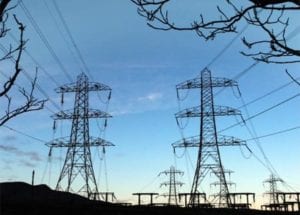Africa’s power development challenge is enormous, with more than 600 million people in sub-Saharan Africa lacking access to electricity.
“In this modern world electrification cannot be overemphasised and therefore all countries must endeavour to ensure that electricity is extended to all corners of the African continent if we want the economic circumstances of our people to improve for the better.”
Engineer. Andrew T. Barfour, Project Coordinator at the Ghana Energy Development and Access Project (GEDAP) at the Ghana Ministry of Energy speaking at African Utility Week last year
According to the International Energy Agency, sub-Saharan Africa needs more than $300 billion in investments to achieve universal electricity access by 2030 – far beyond the capacity of any traditional development programme. There are around 30 countries in Africa that are affected by chronic power failures and supply. To meet these increasing challenges, renewable energy, specifically biomass production, has been highlighted as an alternative generation method.
Innovation is key to transformation
Off-grid rural electrification programmes are now promoted in Kenya, Uganda, Tanzania, Ethiopia, Rwanda and Southern Africa through the Rural Electrification Fund (REF) which promotes decentralised, mainly renewable energy technologies through the private sector and electricity service cooperatives.
In Somalia, the Virginia Polytechnic and State University has a dedicated team linking biomass production and rural off-grid electrification models to enable local communities to produce adequate power to ensure safe food production and storage. Professor John Mitchell who leads the programme says: “The key to rural electrification is that it should be sustainable and replicable and engage the immediate community. Electrification programmes have to be based on a sustainable business model, be economically viable, innovative and self-financed where possible.”
Grid accessibility in Ethiopia is currently standing at 52% and biomass energy usage has proven to be unsustainable for most parts of the country. According to a recent study, in more than two-thirds of districts bioenergy uses surpass sustainable yields and solar energy was found to benefit the immediate community more. EEPCo, Ethiopia’s utility, has launched the Universal Electricity Access Programme (UEAP) and has a goal of offering access to all by 2015. Ghana reaps reward in connecting people to the grid The National Electrification Scheme (NES) policy in Ghana was instituted in 1989 when the national electrification access rate was about 25%. Setting out with a goal to extend reliable electricity supplies to all communities over a 30-year period (1990-2020), and with overarching aims of enhancing socio-economic development nationwide; and reducing levels of poverty nationwide, particularly in the rural areas. The NES considers all possible options of electrification including grid extension and off-grid renewable energy-based solutions such as biomass, solar, wind and small hydro schemes. The NES has 69 grid-based electrification project packages identified and prioritised for implementationover six 5-year phases. Of these projects is the innovative Self-Help Electrification Programme (SHEP) that was introduced by government to encourage communal participation and the self-help developmental initiatives of communities and to support the main NES. About 70 communities have benefited from the installation of diesel generating plants with corresponding distribution networks whereby beneficiary communities contributed about 1% of the capital cost. With this innovative scheme and strong policy documents in place the Ghana national electrification access is currently 72% up from 25% since 1990.
African Utility Week, taking place from 13-14 May 2014 at the CTICC in Cape Town, will highlight similar case studies and the companies who have been responsible for pioneering new frontiers, pushing boundaries, for inspiring others and for achieving growth for Africa.Alongside the conference and exhibition gathering over 5,000 industry professionals is the opportunity to inspire continued innovation through the African Utility Week Awards nominations www.african-utility-week.com







